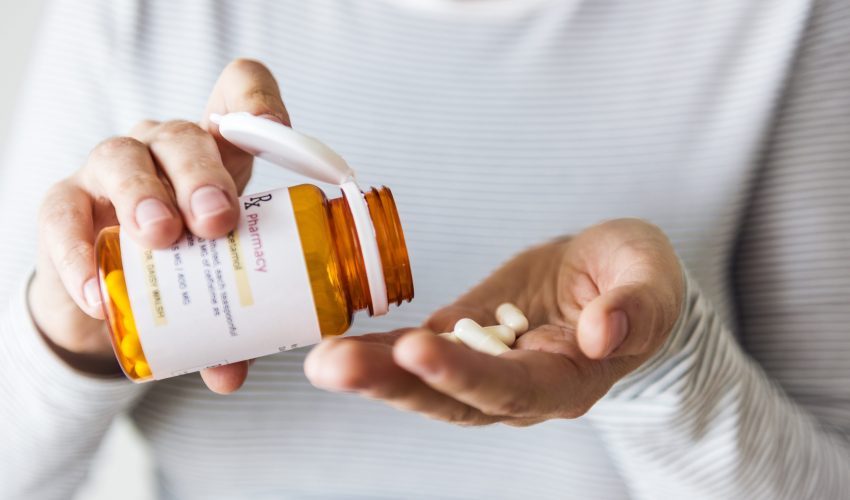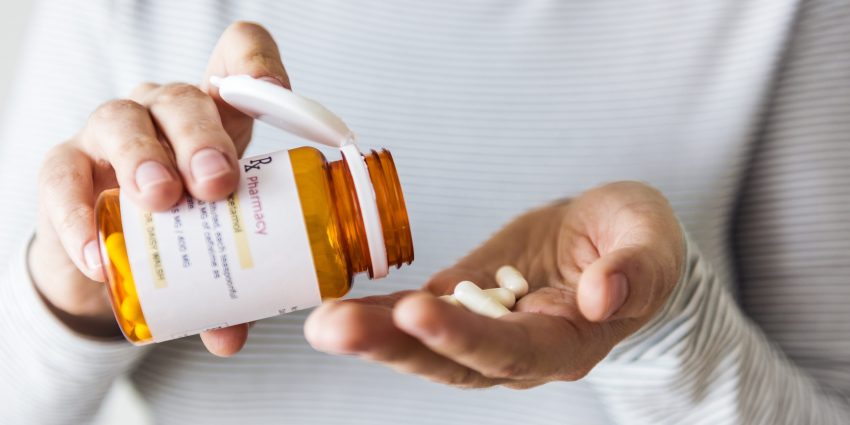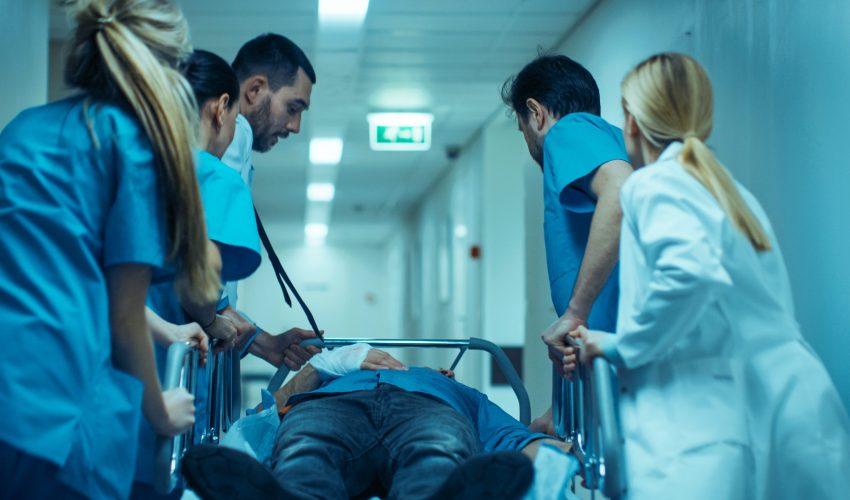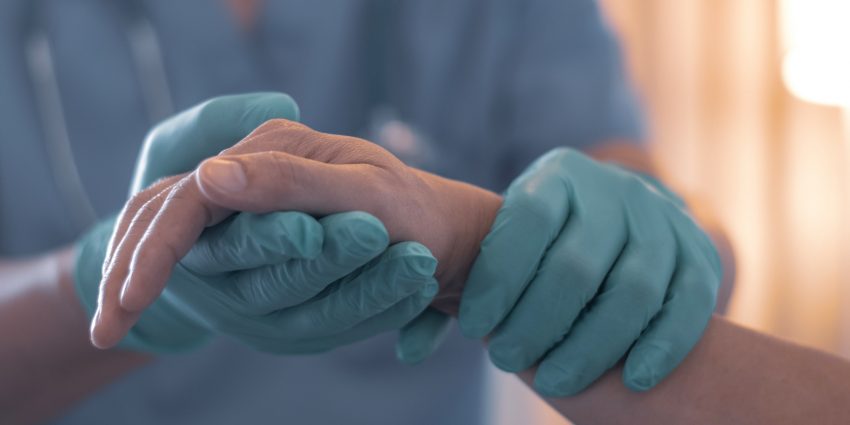Post Views: 1,427
ViewsThe Opioid Epidemic: Cannabis as a Solution
By Ava Sammarco
The opioid epidemic is a severe health problem in this country, with one-hundred and thirty people dying daily in the United States from prescription painkiller overdose (Beare Vyas, 2017). Healthcare providers need to learn the benefits of medical cannabis, which provides a partial tool to assist patients on opioids to safely detox (Sulak, 2019). This paper will summarize five peer-reviewed articles regarding assessment, implementation, and effective use of medical cannabis in replacing opiates in patients with chronic pain.
Literature Review
The first summarization is a journal article entitled, The use of cannabis in response to the opioid crisis: A review of the literature by Marianne Beare Vyas, RN, MSN, ANP-BC, and Virginia LeBaron, Ph.D., APRN, FAANP, and Aaron M. Gilson, Ph.D., MSSW. The article examined state medical cannabis (MC) laws and policies and their association to prescription opioid medications (POMs) related to harm reduction strategies.
The methodology for collecting data involved the implementation of a systematic review of the literature to explore the United States policies related to MC use and the connection with POM use (Beare Vyas, 2017). A search of the databases included: Medline, Pubmed, CINAHL, and Cochrane to identify peer-reviewed articles published between 2010 and 2017. The search criteria resulted in 11,513 records, with 789 abstracts reviewed, and then 134 full-text articles screened for eligibility by the researchers. In the final review, only two studies addressed the substitution of MC for POM. The first by Sexton et al., (2016) found that in a survey of MC patients (n = 1,429) in Washington, nearly 60% reporting substituting cannabis for any prescription drug and 25% for pain medication. In a study by Corroon et al. (2017) 2,774 MC patients were surveyed online and through a state dispensary. Forty-six percent reported using cannabis as a substitute for prescription drugs.
In conclusion, the research suggests states that implement MC policies has decreased POM-associated mortality, improved pain management, and significantly reduced healthcare costs (Beare Vyas, 2017). The limitation of this study is constrained by federal policy restrictions; more research related to MC and POM for pain management is needed but has not been a priority of nursing research (Beare Vyas, 2017).
A second article summarized is entitled, Cannabis as a substitute for prescription drugs – a cross-sectional study by J. Corroon, and L.K. Mischley. This study aimed to survey cannabis users to determine whether they had intentionally substituted cannabis for prescription medications (Corroon, 2017).
The methodology involved a total of 12,774 participants who were a self-selected convenience sample who reported having used cannabis at least once in the previous 90 days. The survey involved the completion of an anonymous online questionnaire on cannabis substitution effects by participants. The recruitment of subjects involved social media and cannabis dispensaries in the state (Corroon, 2017). A total of 1,248 (46%) respondents reported using cannabis as a substitute for prescription drugs. The most common classes of drugs substituted were narcotics and opioids (35.8%0, anxiolytics (13.6), and antidepressants (12.7%) (Corroon, 2017). A limitation of this study includes the participants were self-selected and in one designed area.
In conclusion, these patient-reported outcomes support prior research that people are using cannabis as a substitute for prescription drugs, particularly narcotics, and independent of whether they identify themselves as a medical user. Additionally, state laws allowing access to, and use of, medical cannabis may not be influencing individual decision to use medical cannabis (Coroon, 2017).
The third article summarized, Is there less opioid abuse in states where marijuana has been decriminalized, either for medicinal or recreational use? A Clin-IQ by Aaron M. Wendelboe, Ph.D., Richard Mathew, MD, and Ann F. Chou, Ph.D., MPH. This study examines if medical marijuana legislation may reduce adverse opioid-related outcomes if patients substitute cannabis for opioids for pain management.
The methodology involved a clinical inquiry (Clin-IQ) of the databases that included: Medline, Pubmed, CINAHL, and Cochrane to identify peer-reviewed articles published between 2012 and 2018. Ten peer-reviewed studies met the inclusion criteria; three cross-sectional studies, six ecologic studies, and one retrospective cohort study (Wendelboe, 2019). The total of subjects ranged from n = 20 to n = 2774. A limitation of this study is the design and inconsistency in identifying a pattern in the results (Wendelboe, 2019).
In conclusion, there is mixed evidence regarding the impact of marijuana legislation and prescription opioid-related outcomes (Wendelboe, 2019). The eight studies reviewed provide evidence of reductions in the rate of opioid overdose in states with medical marijuana laws; further studies are needed to determine the impact of marijuana legislation on opioid use and abuse (Wendelboe, 2019).
The fourth article summarized the Rationale for cannabis-based interventions in the opioid overdose crisis by Philippe Lucas. This study examined the opioid overdose crisis using evidence-based cannabis interventions.
The methodology involved a sectional survey of patients in Canada’s national medical cannabis system, which determined 63% of respondents reported substituting cannabis for prescription drugs (n = 166), with 32% substituted for opioids (n = 80) (Lucas, 2017). The explanation expressed by patients for this substitution was less adverse side effects; cannabis is safer and provides better symptom management (Lucas, 2017).
In summary, cannabis is effective in treating an opioid disorder and associated morbidities (Lucas, 2017). The increasing amount of research supporting medical cannabis as an adjunct or substitute for opioids creates evidence-based results for healthcare providers, governments, and academic researchers; therefore, national and regional level government agencies need to immediately implement a cannabis-based intervention to address this opioid crisis (Lucas, 2017).
The fifth article evaluated medical cannabis access, use, and substitution for prescription opioids and other substances: A survey of authorized medical cannabis patients by Philippe Lucas and Zach Walsh. The goal of the study was to determine which class of drugs does cannabis replace (Lucas & Walsh, 2017).
In conclusion, the results reflect that cannabis is a substitute for prescription drugs, which support previous research from cannabis users (Lucas & Walsh, 2017). In addition, results from the study reflected patients selected pain-related diseases the most prevalent for cannabis treatment (n = 144; arthritis 12%, chronic pain 36%, headache 5% (Lucas & Walsh, 2017). The second most common class reported by patients was mental health (PTSD, eating disorders, and psychiatric disorders (Lucas & Walsh, 2017).
Assessment
There is no universally accepted instrument to assess the cannabis patient; therefore, a careful clinical interview is critical to determine the appropriate evaluation for the patient’s purpose and clinical environment (Stoner, 2016). The assessment purpose determines the level of risk, the extent of the problem, and the protective factors for clinicians to create a course of treatment.
The nurse may use self-report measures for cannabis assessment to determine the quantity and frequency of use (Stoner, 2016). The nurse can use the following valid and reliable assessment instruments: Timeline Followback Method, Marijuana Craving Questionnaire, Marijuana Withdrawal Checklist, and Marijuana Motives Measures (Stoner, 2016). Nurses can achieve positive treatment outcomes for their cannabis patients with an assessment to facilitate the recognition, management, and treatment for their patients.
A form of communication to improve the nurse and patient therapeutic relationship is Motivational Interviewing (MI), a collaboration between nurses and patients to develop personal motivations for changing behaviors that promote health (Dossey, 2009). Nurses that implement MI can determine confidence, motivation, understanding, and roadblocks to change by asking questions, recognizing patient autonomy and responsibility, and reserving judgment (Dossey, 2009).
Nurses need to explore the principles of MI to facilitate wise health improvement decision-making in patients. (Droppa, 2014). The MI principles support patients’ focus on their goals and what they are willing/able to do to achieve them. Nurses need to express empathy and use reflective listening to confirm a nonjudgmental attitude and acceptance. This process involves rephasing patients’ comments to demonstrate comprehension and to convey an attempt to understand and listen to patients’ viewpoints (Droppa, 2014).
During the assessment, nurses need to identify discrepancies and to guide patients’ awareness of the gap between their goals and current behaviors. When identified, patients are more likely to be motivated to change their actions (Droppa, 2014). Also, nurses need to roll with resistance; adjusting to resistance is better than directly disputing for change (Droppa, 2014). Acceptance of patient ambivalence is part of the process (Droppa, 2014). Nurses need to support the patients’ self-esteem and to encourage an optimistic belief in the prospect of change, which will assist patient commitment to positive behavioral changes (Droppa, 2014).
A holistic approach supports the cannabis patient by addressing the root cause of addiction, while a medical approach focuses only on the symptoms (Polansky, 2018). Frequently, the factors that influence cannabis patient addiction include a history of trauma or a mental health diagnosis (Polansky, 2018). Also, some individuals have a genetic component that makes them a high risk for addiction (Polansky, 2018). Holistic nursing recognizes and understands the causes of addiction are necessary to create an individualized treatment care plan (Polansky, 2018).
During the interview summarization, the patient needs to participate in the development of a treatment plan. Research shows that enhanced communication between nurses and patients significantly improves treatment adherence (Droppa, 2014). Experienced nurses can develop questions to evoke self-reflection and set the foundation needed to successfully motivate behavioral change that positively impacts immediate and long-term health (Droppa, 2014). To realize behavioral changes, nurses need to support patients’ sense of empowerment, responsibility, and self-confidence.
Implementation
Cannabis in Florida is illegal for recreational use. In 2016, on a second attempt, a constitutional amendment to legalize medical cannabis in Florida passed (Cannabis in Florida, 2016). Appearing on the ballot as Amendment 2, the initiative was approved on November 8, 2016, by a vote of 71.3% versus 28.7% against (Cannabis in Florida, 2016). The initiative legalized the use of cannabis with a doctor’s recommendation for treatment of cancer, epilepsy, glaucoma, post-traumatic stress disorder (PTSD), amyotrophic lateral sclerosis (ALS), Crohn’s disease, Parkinson’s, multiple sclerosis, and chronic pain (Cannabis in Florida, 2016).
To prepare for patients’ challenges or concerns, a cannabis nurse needs to encourage holistic integrative modalities to promote health and healing. Also, it is essential to discuss with the patient other possible holistic modalities: stress management, yoga, acupuncture, and massage (Sulak, 2019). The patient needs to decide on a holistic modality which he/she enjoys and expressed commitment to perform 3-5 times a week. The cannabis nurse needs to be empathetic, accepting, optimistic, and affirmative to make behavior change a reality. In addition, it is essential to support the patient’s sense of responsibility, empowerment, and self-confidence (Droppa & Lee, 2014)
The cannabis nurse needs to educate the patient regarding self-titration. The recommended protocol for dosing is to start with a liquid cannabis preparation administered under the tongue by the patient, providing immediate benefits and is easy to adjust dosage. The oral concentration should give a specific milligram (amount of drug), per milligram (amount of medication), per milliliter (amount of liquid), potency (mg/ml), allowing accurate dosing by drops or an oral syringe.
The cannabis tincture should be taken 3 to 4 times daily or with every administration of an opioid drug. The content of CBD and THC is essential. For most patients, a CBD: THC ratio of 1:1 is effective and well-tolerated. Most patients achieve excellent results at 2mg to 5mg of THC per dose (Sulak, 2019). Many patients reduce their opioid dosage by 50% to 80% in the first two weeks after adding cannabis at the optimal dose and then continue to reduce opioids more slowly.
In addition, Dr. Dustin Sulak, D.O. educational website provides a simple program to improve the health and augment the power of cannabis (Sulak, 2019). The content is comprehensive and easy to understand. Dr. Sulak demonstrates easy exercises and discusses specific foods that enhance the endocannabinoid system.
A cannabis nursing approach in coaching a patient includes the following interventions. Before the session, spend time preparing and connecting with your inner wisdom to facilitate healing (Dossey, 2009). To begin the session, review the patient’s self-assessment results, reinforce the idea of overcoming addiction, and assist in the identification of steps necessary for safe detoxification (Dossey, 2009). To end the session, ask the patient to verbally repeat the medication directions, ask if there are any questions, and give the patient the provider’s contact information. Make a follow-up appointment and verbalize follow-up will be made in three days to check on their status.
The endocannabinoid system (ECS) is consistently changing in response to the environment (Goldstein, 2016). Scientists identified an increase of cannabinoid receptors as up-regulation and a decrease in the number down-regulation (Goldstein, 2016). Research has found foods that assist the ECS to function optimally, improve health, and enhance the effectiveness of medical cannabis (Sulak, 2019). One group of ECS enhancing foods are essential fatty acids, which consist of a healthy ratio of omega-3 and omega-6 fatty acids; sources of endocannabinoids fatty acids include flax seeds, chia seeds, hemp seeds, walnuts, and eggs (pasture-fed- or omega-3 enriched only (Sulak, 2019). Secondly, cacao powder has three compounds that inhibit the breakdown of the body’s endocannabinoids, which results in increased endocannabinoid level (Sulak, 2019).
Also, numerous herbs and teas can enhance the ECS, including the terpene found in black pepper, oregano, clove, and cinnamon (Sulak, 2019). These herbs stimulate the CB2 receptor, a property required in the developing treatments for inflammatory disorders (Sulak, 2019). In addition, probiotics and unpasteurized fermented food can assist in improving the ECS function in the stomach (Sulak, 2019).
The ECS can be enhanced by certain activities that will improve your health and increase cannabis effectiveness (Sulak, 2019). Individuals who experience chronic stress can deplete their ECS; however, including exercise into your daily routine will assist you in keeping the ECS well-tuned (Sulak, 2019). Activities that promote health and enhance the ECS include voluntary exercise, yoga, massage, meditation, and breathing exercises (Sulak, 2019).
When considering its therapeutic benefits, medical cannabis is an extremely safe medication, with most side effects described as mild, but rarely dangerous (Sulak, 2019). The most commonly reported side effects include changes in fine-motor control, balance, tiredness, anxiety, dry mouth, increased appetite, and impaired short-term memory (Sulak, 2019). However, patients usually develop a tolerance to the adverse side effects of cannabis within the first 3-5 days, while the positive results continue the increase (Sulak, 2019).
One political problem around prohibition that impacts a patient’s care is the gap of insufficient knowledge regarding the exact content and purity of cannabis (Sagy et al., 2018). The involvement of commercial cannabis dispensaries can expose patients to outside influences and numerous unresolved ethical considerations (Sagy et al., 2018).
In addition, the prohibition of cannabis has been minimally successful in decreasing cannabis use (Grotenhermen, 2007). Therefore, unless research demonstrates that the decriminalization of personal use and the regulation of medical cannabis will increase the harmful effects of the drug, it is difficult to understand how society will benefit from continued prohibition (Grotenhermen, 2007).
Conclusion
The highest priority for cannabis researchers is to pursue the role of CBD related to the opioid epidemic. Researchers’ ability to study large-scale populations is restricted by Federal laws that classify cannabis as a Schedule 1 narcotic. Consequently, the benefits of CBD compounds on humans and their interactions continue to be a mystery. With pressure from the medical profession and the public, our government will be encouraged to remove cannabis from Schedule 1, providing an opportunity to learn the benefits of these cannabinoids on humans. As a result, researchers will be able to focus on developing cannabis-based pharmacological therapies to treat opioid use disorders and to save lives across the nation.
References:
Beare Vyas, M. (2017, September 21). The use of cannabis in response to the opioid crisis: A review of the literature. ScienceDirect, 56-65. http://dx.doi.org/10.1016/j.outlook.2017.08.012
Cannabis in Florida (2016). Cannabis in florida. Retrieved from Https://en.wikipedia.org/wikiu/Cannabis_in)_Florida
Corroon, J., & Mischley, L. (2017, February 9). Cannabis as a substitute for prescription drugs- a cross-sectional study. Dovepress, 2017(), 989-998. http://dx.doi.org/Https://doi.org/10.2147/JPR.S134330
Dossey, B., & Hess, D. (2013, July). Professional nurse coaching: Advances in national and global healthcare transformation. Global Advances in Health and Medicine, 2(4), 10-16. http://dx.doi.org/10.7453/gahmj.2013.044
Droppa, M., & Lee, H. (2014). Interviewing a journey to improve health. Retrieved from http://wwwNursing2014.com
Goldstein, B. (2016). Cannabis revealed. United States: Bonni Goldstein.
Grotenhermen, F. (2007). The toxicology of cannabis and cannabis prohibition. Chemistry & Biodiversity, 4. Retrieved from http://www. Nova-institut.de
Lucas, P. (2017). Rationale for cannabis-based interventions in the opioid overdose crisis. Harm Reduction Journal, 14(58), 1-22. http://dx.doi.org/10.1186/s12954-017-0183-9
Lucas, P., & Walsh, Z. (2017, 2017-04-01). Medical cannabis access, muse, and substitution for prescription opioids and other substances: A survey of authorized medical cannabis patients. International Journal of drug Policy, 42, 30-35. Retrieved from http://www.clinicalkey.com
Polansky, B. (2018). Defining holistic addiction treatment. Retrieved from http://1stStepBehaviorHealth.org
Sagy, I., Peleg-Sagy, T., & Barski, L. (2018, January 11th). Ethical issues in medical cannabis use. European Journal of Internal Medicine, 49, 20-22. http://dx.doi.org/10.1016/j.ejim.2018.01.016
Sexton, M., & Finnell, C. (2016). A cross-sectional survey of medical cannabis users: Patterns of use and perceived efficacy. Cannabis and Cannabinoid Research, 1(1), 131-138. Retrieved from Http:www.cannabisandcannabiboidresearch.com
Stoner, S. A. (2016, May). Screening & assessment of cannabis use disorder. Alcohol & Drug Abuse Institute, 1-5. Retrieved from http://lib.adai.uw.edu/instruments
Sulak, D. (2019). Introduction to cannabis . Retrieved from http://www.Healer.com
Wendelboe, A. M. (2019). Is there less opioid abuse in states where marijuana has been decriminalized, either for medicinal or recreational use? A clan-iq. Journal of Patient-Centered Research and Reviews, 1-6. http://dx.doi.org/10.17294/2330-0698.1704
Wiese, B., & Wilson-Poe, A. R. (2018). Emerging evidence for cannabis’ role in opioid use disorder. Cannabis and Cannabinoid Research, 3.1, 179-186. http://dx.doi.org/10.1089/can.2018.0022
Bio‐ Linda Casale, RN
I have been a psychiatric mental health nurse for over twenty years and learned the importance of taking care of my body and mental health. I have a desire to assist people from their physical and psychological distress with cannabis. I specialize in advising clients who want a change, how easy it is to shift your entire life by making new decisions that create the outcomes that are possible and desired!
7 comments on The Opioid Epidemic: Cannabis as a Solution
Leave a Reply
The Opioid Epidemic: Cannabis as a Solution
By Nurse Advisor Magazine (Official)
The opioid epidemic is a severe health problem in this country, with one-hundred and thirty people dying daily in the United States from prescription painkiller overdose














My mom was suffering from Type 2 diabetes and Lupus for over 17yrs. She tried many drugs but at last became dependent on saferoom and metformin due to the weakness and constant pains, She found that life was just sinking & there was no way of hope. Then she consulted Chief Dr Lucky for herbal treatments, Which she had been hearing so much about, After some couple of days taking this herbal medicine, Things started to change, The symptoms started to decrease and after 19 days of taking it, She became healthy and fully free from all the symptoms of Type 2 diabetes and Lupus. My mom’s life is totally different now. That’s why I decided to let everybody know about the wonderful healing of Chief Dr Lucky herbal, If you are having any health challenges kindly visit email chiefdrlucky@gmail.com or WhatsApp +2348132777335
Website chiefdrlucky.com.
I ordered a job spell on a Friday night and on Monday the place I applied for a job called for me to come by their office. They gave me the job I applied for and made me an offer of more per hour than I have ever made in my life! I am so happy! Government jobs sometimes are a slow process. You somehow managed to speed up that process, and I start in just a few days! DR EMU I will be forever grateful thanks once again. You can call on him for help on his email address emutemple@gmail.com or add him up on his WhatsApp +2347012841542. DR EMU also lent a helping hand to the following } 1. GETTING YOUR EX LOVER BACK. 2. WINNING LOTTERIES. 3. CHILD BEARING. 4. BREAKING OF GENERATION COURSE. 5. GETTING OF JOB. 6. JOB PROMOTION. 7. HERBAL CARE. 8. SPIRITUAL PROTECTION. 9. HERBAL CARE. 10. SPIRITUAL PRAYER. E.T.C.
My ex-husband and I had always managed to stay friendly after our divorce in February 2017. But I always wanted to get back together with him, All it took was a visit to this spell casters website last December, because my dream was to start a new year with my husband, and live happily with him.. This spell caster requested a specific love spell for me and my husband, and I accepted it. And this powerful spell caster began to work his magic. And 48 hours after this spell caster worked for me, my husband called me back for us to be together again, and he was remorseful for all his wrong deeds. My spell is working because guess what: My “husband” is back and we are making preparations on how to go to court and withdraw our divorce papers ASAP. This is nothing short of a miracle. Thank you Dr Emu for your powerful spells. Words are not enough.
Email emutemple@gmail.com
Phone/WhatsApp +2347012841542.
My name is ashley walters !!! i am very grateful sharing this great testimonies with you all, The best thing that has ever happened in my life, is how i won the Powerball lottery. I do believe that someday i will win the Powerball lottery. Finally my dreams came through when i contacted Dr. OSE and tell him i needed the lottery winning special numbers cause i have come a long way spending money on ticket just to make sure i win. But i never knew that winning was so easy with the help of Dr. OSE, until the day i meant the spell caster testimony online, which a lot of people has talked about that he is very powerful and has great powers in casting lottery spell, so i decided to give it a try. I emailed Dr. OSE and he did a spell and gave me the winning lottery special numbers 62, and co-incidentally I have be playing this same number for the past 23years without any winning, But believe me when I play the special number 62 this time and the draws were out i was the mega winner because the special 62 matched all five white-ball numbers as well as the Powerball, in the April 4 drawing to win the $70 million jackpot prize…… Dr. OSE, truly you are the best, with Dr. OSE you can will millions of money through lottery. i am a living testimony and so very happy i meant him, and i will forever be grateful to him…… you can Email him for your own winning special lottery numbers now oseremenspelltemple@gmail.com OR WHATSAPP him +2348136482342
http://www.facebook.com/Dr-odion-spell-temple-110513923938220
Only a tiny percentage of professional hackers have the specialized hacking abilities and knowledge needed to recover lost BTC, Facebook hacking and Catching a cheating partner via a Whatsapp link. Finding a reliable hacker like HACKERWEREWOLF is preferable.
A first class hacking hacking team that can aid in the recovery of your misplaced cryptocurrency, lost Facebook account and hacking your partner Whatsapp to know if they are cheating on you.
A hacking organization that can aid in the recovery of your misplaced cryptocurrency, lost Facebook account and to help you gain access to your cheating partner Whatsapp. For a long time, I was very confused and i always felt awful about my partner’s cheating attitude. I really wanted to track and catch him red-handed. I spoke with a trusted colleague of mine at work and she gave me a genuine recommendation about an ethical private investigator named HACKERWEREWOLF.
HACKERWEREWOLF and their extraordinary team emerged as the catalysts of change. Their exceptional knowledge and relentless determination Helped me to see all the lies that my partner have been saying. If you find yourself lost in the depths of lost Bitcoin, facebook and Whatsapp hacking, let HACKERWEREWOLF’s team guide you towards the light of redemption.
Facebook page:Hackerwerewolf
Email:hackerwerewolf637@gmail.com
Whatsapp:+4917617861530
Only a tiny percentage of professional hackers have the specialized hacking abilities and knowledge needed to recover lost BTC, Facebook hacking and Catching a cheating partner via a Whatsapp link. Finding a reliable hacker like HACKERWEREWOLF is preferable.
A first class hacking hacking team that can aid in the recovery of your misplaced cryptocurrency, lost Facebook account and hack your partner Whatsapp. A hacking organization that can aid in the recovery of your misplaced cryptocurrency, lost Facebook account and to help you gain access to your cheating partner Whatsapp. I lost $298k in BTC to bitcoin mining, and HACKERWEREWOLF was able to retrieve it. In my darkest hour, when my Bitcoin was lost and hope seemed but a distant memory, HACKERWEREWOLF and their extraordinary team emerged as the catalysts of change.
Their exceptional knowledge and relentless determination propelled me towards recovery, restoring my faith in the crypto world, Facebook/Whatsapp hacking.
If you find yourself lost in the depths of lost Bitcoin, facebook and Whatsapp hacking, let HACKERWEREWOLF’s team guide you towards the light of redemption.
Facebook page:Hackerwerewolf
Email:hackerwerewolf637@gmail.com
Whatsapp:+4917617861530
Osecybersailing is a first class hacking team that can aid in the recovery of your misplaced cryptocurrency, lost Facebook account and hacking your partner Whatsapp to know if they are cheating on you.
For a long time, I was very confused and i always felt awful about my partner’s cheating attitude. I really wanted to track and catch him red-handed. I spoke with a trusted colleague of mine at work and she gave me a genuine recommendation about an ethical private investigator named Osecybersailing.
Osecybersailing and their extraordinary team emerged as the catalysts of change. Their exceptional knowledge and relentless determination Helped me to see all the lies that my partner have been saying. If you find yourself lost in the depths of lost Bitcoin, facebook and Whatsapp hacking, let Osecybersailing’s team guide you towards the light of redemption.
Facebook page:Osecybersailing
Email:osecybersailing@cyberservices.com
Whatsapp:+4917617861530